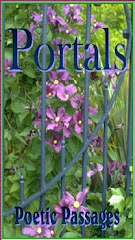Let me start off by saying, I refuse to post this poem.
Yes, this is a poetry site, and I do post poems but this poem The Bells by Edgar Allan Poe just pisses me off!
Why you may ask.
Well, I hate noise.
I hate all kinds of noise -- even the noise chasing its tail behind my forehead. It's all still noise!
When I first read The Bells, I had to put the book down and walk away. In fact I put it down several times. By the time I finished reading The Bells I went looking for a hammer. Sledge hammer, ball ping hammer, MALLET -- anything that I could use to smash any bell I could find.
I wanted to smash the hell out of Poe's bells.
After thinking about my reaction to this noisy poem, I realized that Poe did what an extraordinary writer/poet is suppose to do. They are suppose to invoke emotion from their readers.
Poe did exactly that -- he brought out such strong emotion in me that I had the urge to crush, kill, destroy any bell I could get my hands on.
Then I understood, that's what a great Poet does.
It's not that The Bells isn't a great poem, it's the fact that it is so great that it rung in my ears for days and days.
Let's forget about the Literary purist who lives to dissect the corpse of a poem. The ones who look to see if the meter is off or the rhyme is forced or the metaphors are cliche. Let them eat the poem or poet if they want.
Poetry is truly a painting that is felt rather than seen.
I felt this poem and wanted to do serious damage to anything that rang, rung, tingled, chimed, etc...
*damn bells I hate noise*
So, if you want to read The Bells by Edgar Allan Poe have at it =====> The Bells































